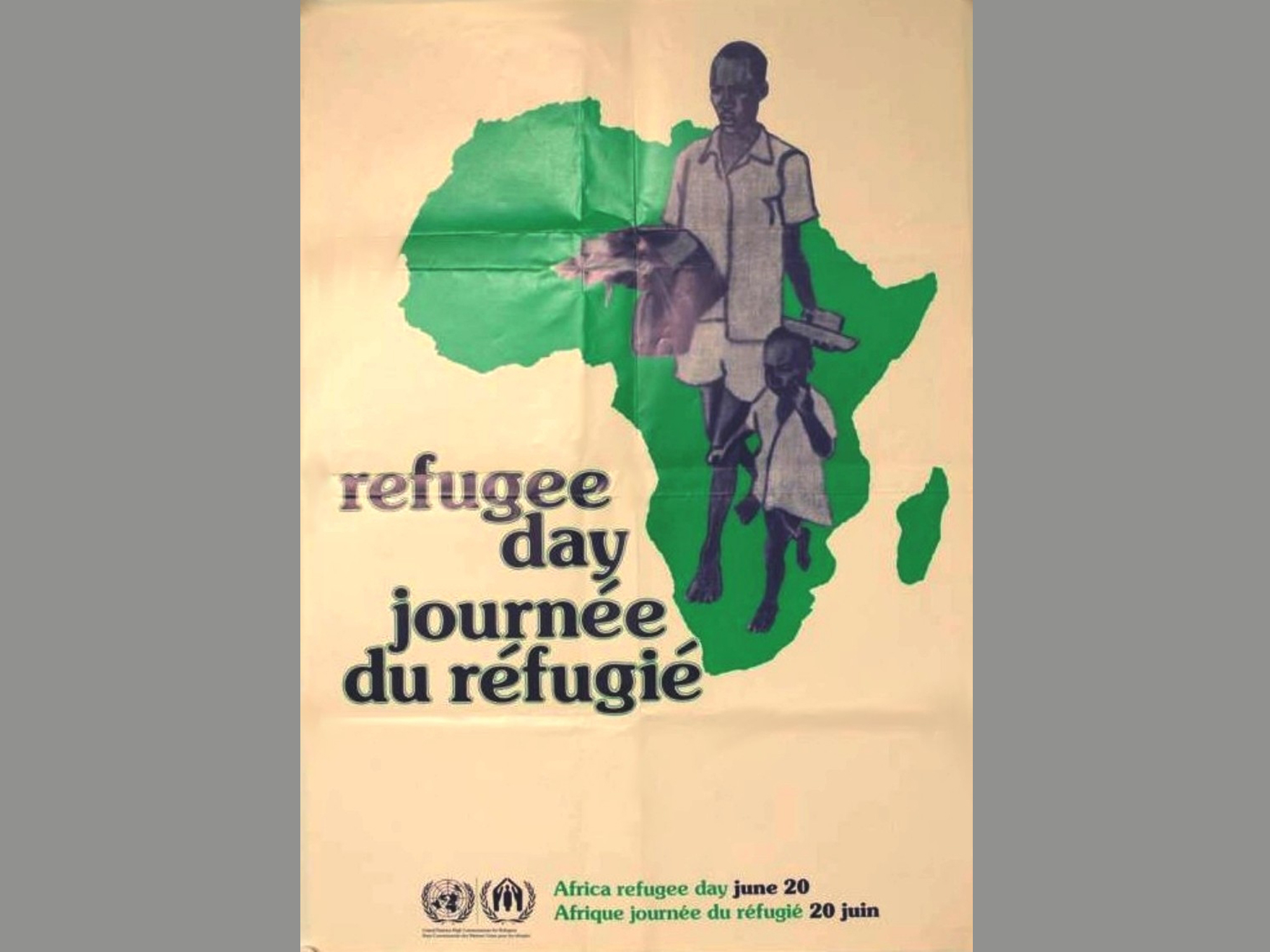World Refugee Day: Contemporary Commemoration based on a long tradition
Although the observation of World Refugee Day began in 2001, the tradition of raising awareness of the refugee cause through commemoration far precedes the twenty-first century, as highlighted on this 1980s poster from African Refugee Day, the precursor to World Refugee Day.
One of the earliest of these recognitions came in 1914 when Pope Pius X instituted the World Day for Migrants and Refugees. Since then, the observance of the refugee cause has entered the political arena at the national and regional levels. The richest of these commemorations, African Refugee Day, was established in 1975 through Resolution 398 adopted by the Organization of African Unity (OAU). African Refugee day was held each year on the 20 June to honor the resilience of those who had been forcibly displaced in Africa. UNHCR routinely worked in tandem with the OAU on this annual event; the poster presented is just an example of their early collaboration.
In December 2000, owing to the increasing success of African Refugee Day throughout the twentieth century and the approaching 50th anniversary of the 1951 Convention relating to the status of refugees, the UN General Assembly adopted Resolution 55/76. This resolution established, with the agreement of the OAU, an international refugee day coinciding with African Refugee Day beginning in 2001.
World Refugee Day celebrates the dignity of those who have been forced to leave their homes. It also pays tribute to the efforts of UNHCR, the UN Refugee Agency, to promote and provide assistance to refugees, and highlights the dedication of UN humanitarian workers in the field aiding refugees, stateless people, and internally displaced persons.
Each year, 20 June now marks an important opportunity to bring attention to the plight of refugees. The evolution from African Refugee Day to World Refugee Day shows a strengthened international solidarity for the refugee cause, for it reinforces international recognition that no one chooses to be a refugee.
For more information:
